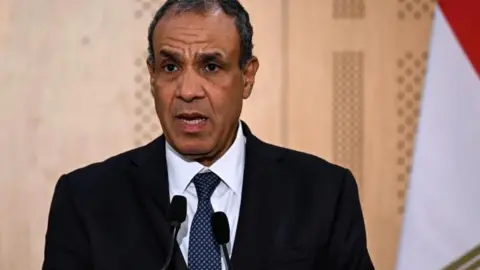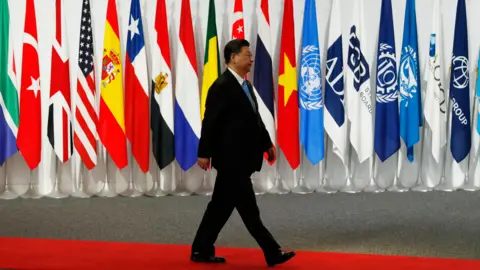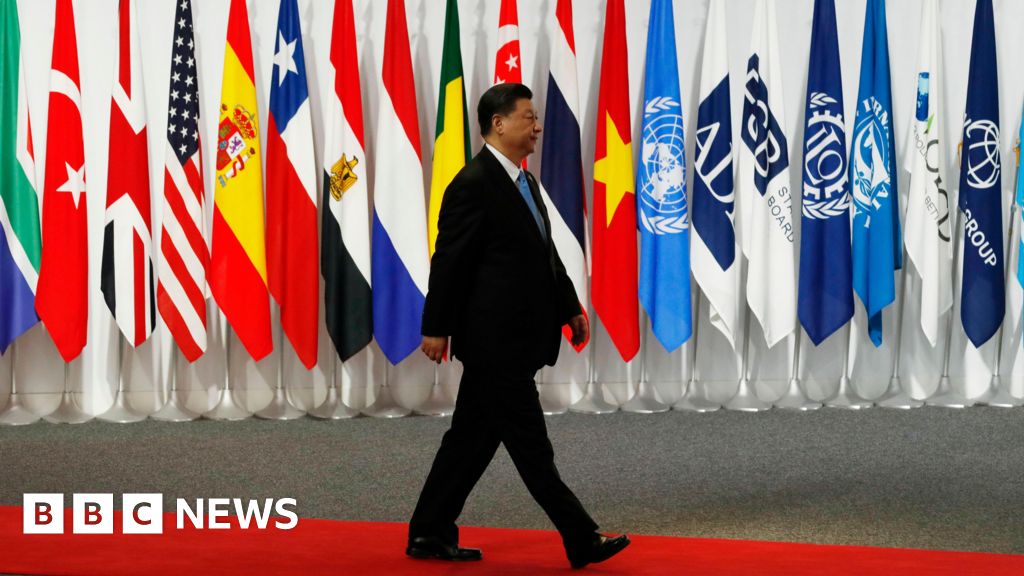After outfoxing Egypt on the diplomatic stage for more than a decade, Ethiopia is set to officially inaugurate one of the world's biggest dams on a tributary of the River Nile, burying a colonial-era treaty that saw the UK guarantee the North African nation the lion's share of its water.
The dam - built on the Blue Nile at a cost of about $5bn (£3.7bn), with a reservoir roughly the size of Greater London - has led to a surge in Ethiopian nationalism, uniting a nation often polarised along ethnic lines and mired in conflict.
Ethiopians may disagree on how to eat injera [their staple food], but they agree on the dam, Moses Chrispus Okello, an analyst with the South Africa-based Institute for Security Studies think-tank, told the BBC.
They do not see it as a pile of concrete in the middle of a river, but as a monument of their achievement because Ethiopians, both at home and in the diaspora, funded the dam's construction. There were waves and waves of appeals for contributions when construction started in 2011.
Named the Grand Ethiopian Renaissance Dam (Gerd), it is Africa's largest hydro-electric plant, raising hopes that it will not only meet the energy needs of its 135 million-strong population but also enhance Ethiopia's foreign currency earnings through electricity exports.
For Egypt, the dam represents the opposite. It fears that water flow to the country will sharply decline, causing shortages. About 93% of Egypt is desert... All of us, 107 million people, live on the Nile, cautioned geologist Prof Abbas Sharaky from Cairo University.
The dam has led Egypt to rethink its agricultural policies, reducing rice production due to water shortages. Despite its concerns, Egypt's academic community has ruled out any potential military action against Ethiopia, suggesting ongoing negotiations remain the preferred avenue.
Ethiopia's Prime Minister Abiy Ahmed highlighted the dam as a symbol of national achievement and a step toward restoring the country's historical access to the Red Sea, which it lost upon Eritrea's independence.
As the inauguration day approaches, discussions about the dam's impact reflect a complex interplay of national pride, regional security, and historical legacies surrounding the Nile's waters.





















